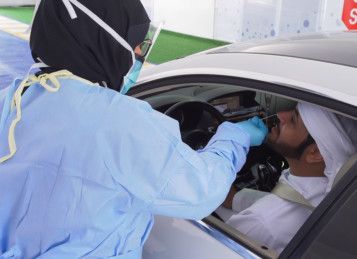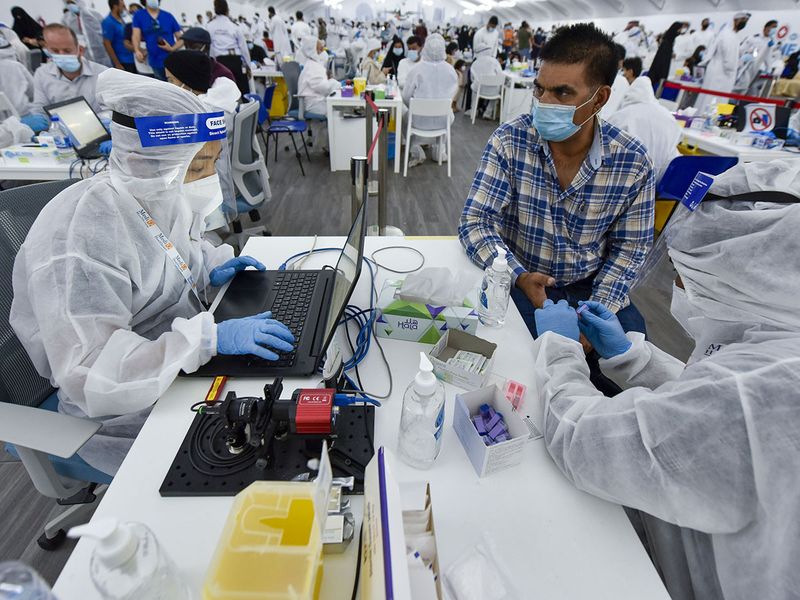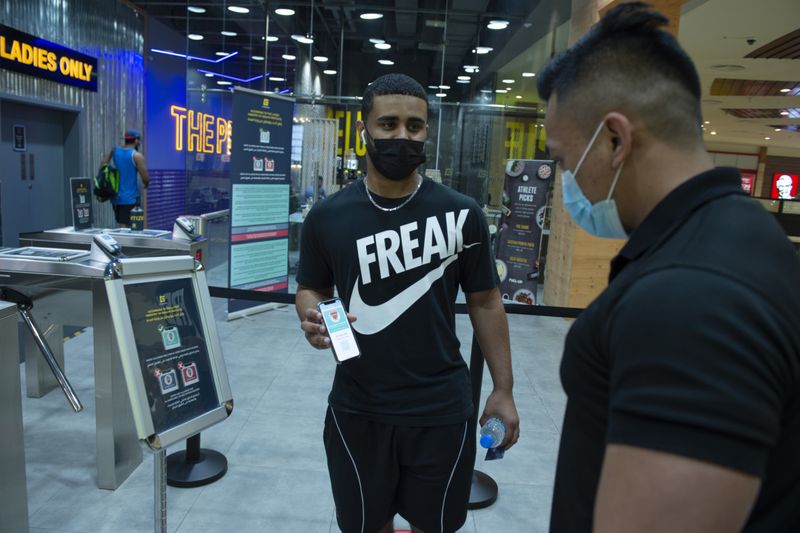Abu Dhabi: A slew of precautionary measures to counter the spread of COVID-19 go into effect all across Abu Dhabi from today, Monday, July 19. These new measures include stricter entry procedures and a nightly sterilisation drive.
Announced over the weekend by the Abu Dhabi Emergency, Crisis and Disasters Committee, these measures are designed to limit the spread of the infection during the Eid holidays.
One of the most important changes to current entry rules is that from today, all those who need to enter Abu Dhabi, must present a negative Covid-19 test report — including those who are fully vaccinated — and the report must not be more than 48 hours old.
Read More
- Eid Al Adha 2021: Public sector holidays announced
- Dubai shuts and fines 26 salons for violating COVID-19 safety guidelines during Ramadan, Eid holidays
- UAE authorities remind public to stay safe this Eid
The measures are timely, given that the UAE experienced an increase in the number of COVID-19 infections after Eid Al Fitr, as reported by the National Crisis, Emergency and Disasters Management Authority (NCEMA) in June. Authorities attributed the subsequent increase in infections to large gatherings organised by residents and to a lack of adherence to COVID-19 preventive measures, such as wearing of masks and maintaining social distancing. The Abu Dhabi authorities therefore said the new measures are “part of proactive efforts to prevent [the spread of] Covid-19 variants”.
Sterilisation programme
Among the key new measures is the launch of a nightly sterilisation programme, starting at midnight on July 19. In view of this, from 12am to 5am, there will be movement restrictions across Abu Dhabi. Residents must stay at home during the said hours of sterilisation, unless there is an emergency. Residents will have to apply for a movement permit with Abu Dhabi Police on the website in order to obtain permission to step out of their houses during the hours of restriction.

COURTESY SEHA
Entry procedures
In a major new update, all residents entering the emirate — including those who are fully vaccinated — will have to present negative COVID-19 test reports. This means that active signs on the Al Hosn app — ‘E’ or a golden star — cannot be used for entry into Abu Dhabi. On the other hand, both PCR and DPI can be presented for entry — each with different follow-up testing requirements.
PCR tests: For entry purposes, a negative result is valid for 48 hours. Follow-up testing is then required on Day 4 for those staying in the emirate for at least four days, with the day of entry counted as Day 1, and again on Day 8, for those staying on for at least eight days.
DPI tests: For entry purposes, a negative result is valid for 24 hours. Follow-up testing is then required on Day 3 for those staying in the emirate for at least three days, with the day of entry counted as Day 1, and again on Day 7, for those staying on for at least seven days. In addition, a DPI test cannot be used for consecutive entries.

Capacity restrictions
Maximum capacity has been capped at 50 per cent across public beaches, public parks private beaches, swimming pools, restaurants, cafés, gymnasiums, spas, buses, and public ferries.
Shopping malls can operate at 40 per cent capacity, while cinemas can only accommodate up to 30 per cent of their capacity.
Public taxis, on the other hand, can accommodate up to three passengers if they are five-seater vehicles, and four passengers if they are seven-seater vehicle.
Ongoing measures
The new precautions complement the other measures that are already in place across the emirate.
For one, entry into a number of public places, including malls and amusement parks, is only permitted if visitors test negative on EDE scanners. Residents are also scanned when driving into the Musaffah area.
Abu Dhabi also recently increased quarantine durations for four of the six groups of people who are eligible for home quarantine. In particular, vaccinated residents who have come into contact with a COVID-19 patient, as well as those who have returned from a place that is not on the Green List, must now quarantine for seven days — up from five days. A follow-up PCR test is prescribed on Day 6.
On the other hand, residents who are not fully vaccinated must quarantine for 12 days if they have come into contact with a Covid-19 patient, or if they have returned from a country that is not on the Green List. A follow-up PCR test must be undertaken on Day 11.

ABUDHABI_Green pass at malls
Location: Khalidiyah Mall Abudhabi
Date: 15/06/2021
Photos: Anas Thacharpadikkal
Like Our Facebook Page For Latest News